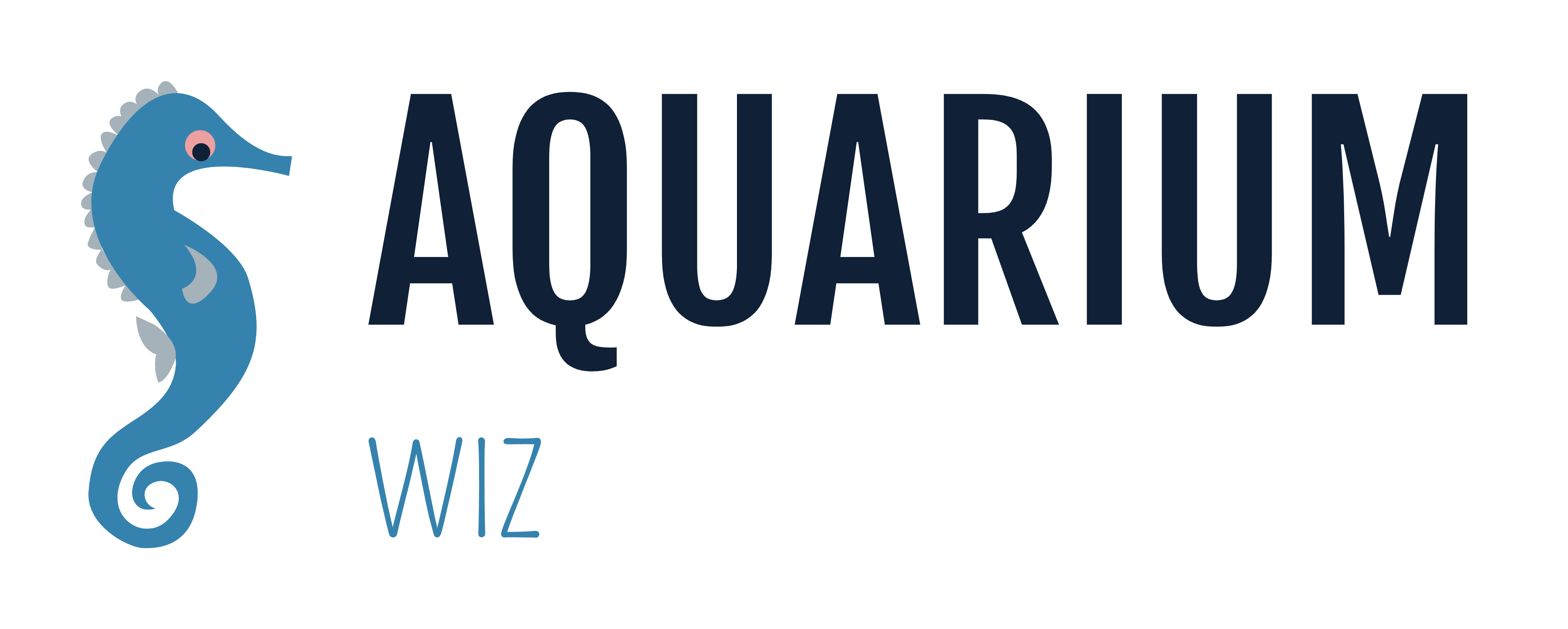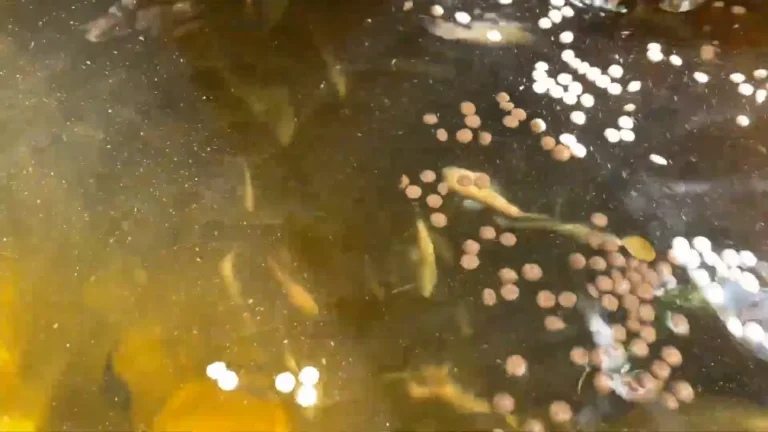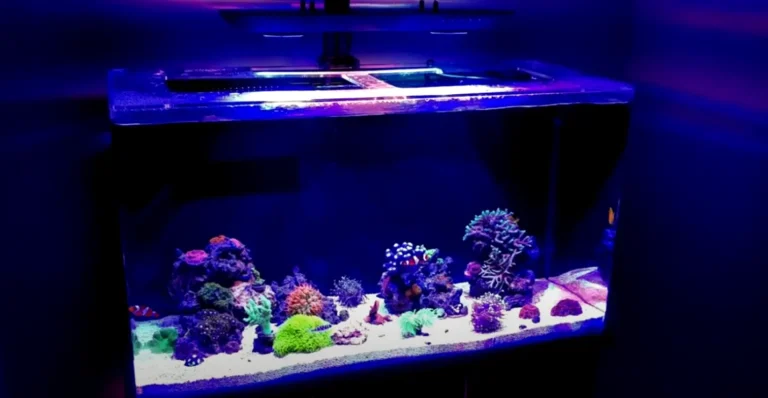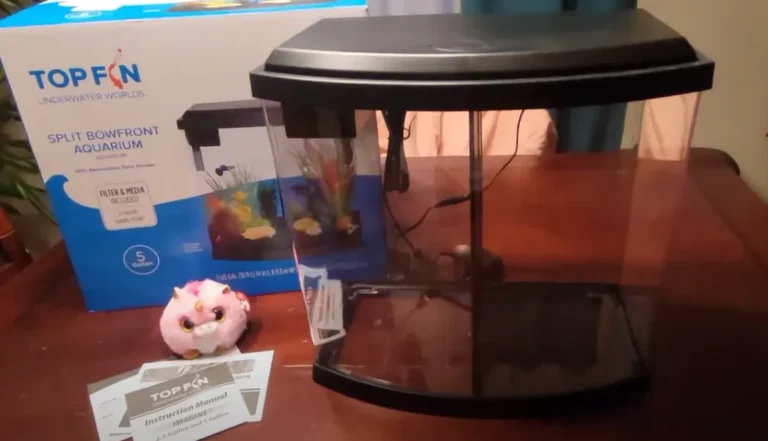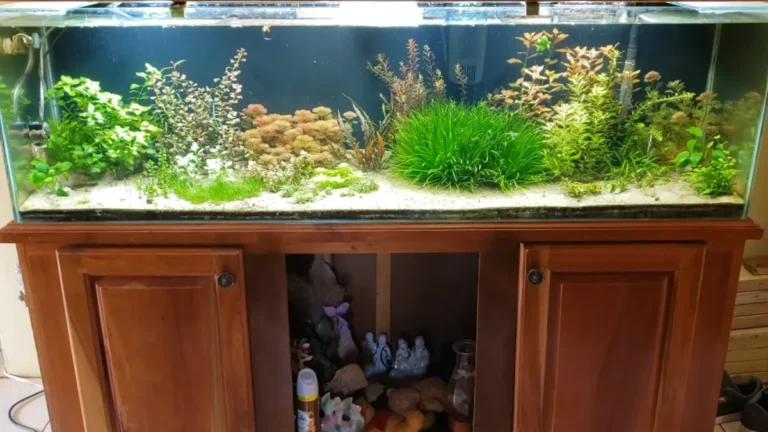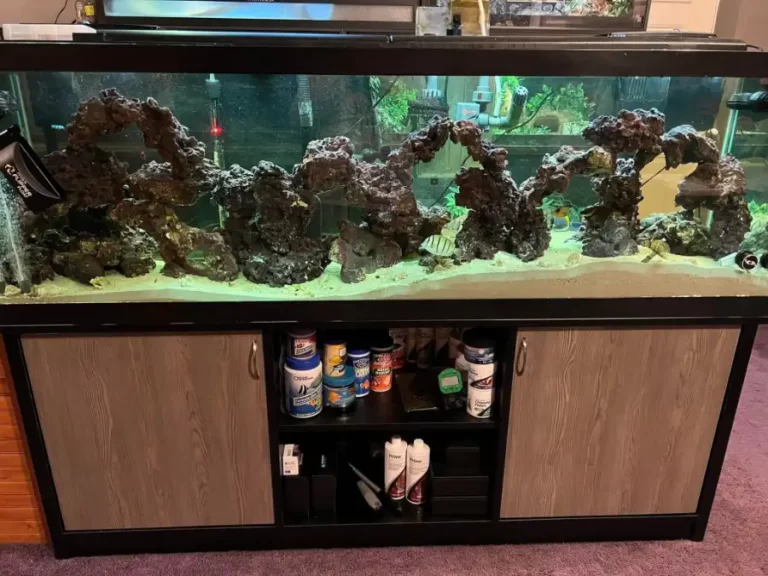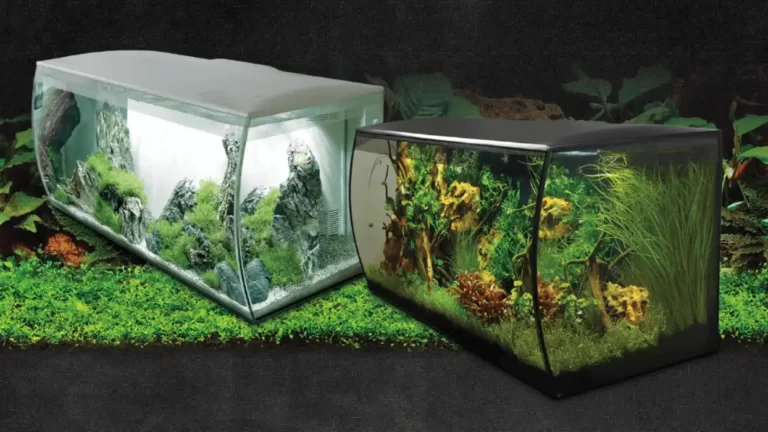Can Expired Fish Food Kill Fish? Find Out Here!
Fish food is an essential component of maintaining a healthy aquarium. It provides the necessary nutrients for fish to grow and thrive. But what happens when that fish food expires? Can it kill fish? These are important questions that aquarium owners should consider when feeding their fish.
Key Takeaways
- Expired fish food can lose its nutritional value over time, which can have adverse effects on aquarium health.
- Understanding fish food expiration dates is essential to keeping fish healthy.
- Properly storing fish food can help prevent it from expiring too quickly.
Understanding fish food expiration dates is essential to keeping fish healthy. Most fish food packages have a batch number and an expiration date printed on them. However, some packages may not have a specific expiration date, making it difficult for pet owners to determine when the food has gone bad. Expired fish food may still be safe to eat, but it can lose its nutritional value over time, which can have adverse effects on aquarium health.
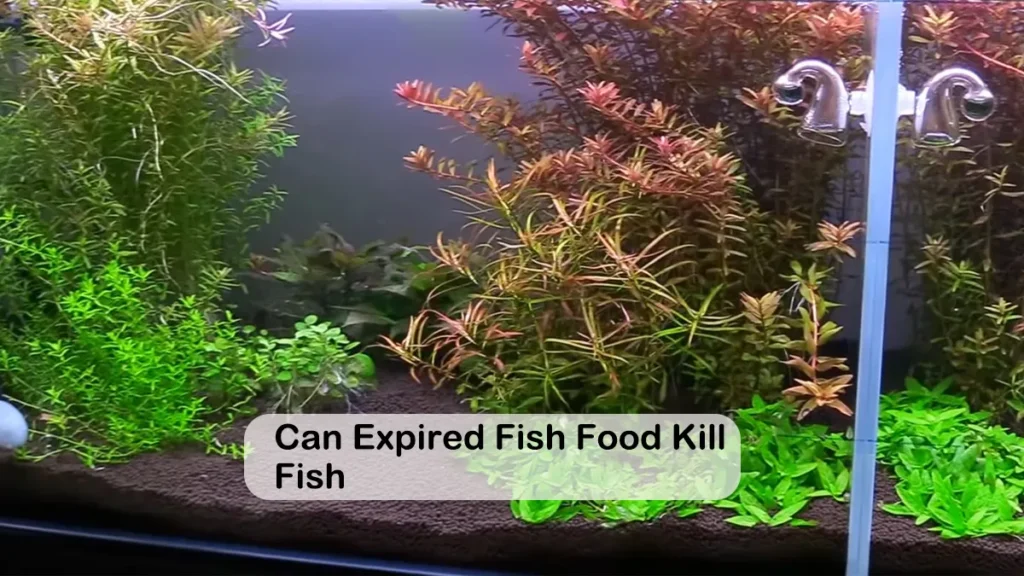
Can Expired Fish Food Kill Fish?
When fish food expires, it loses its nutritional value and can even become toxic. The longer the food sits on the shelf, the more likely it is to become rancid, moldy, or contaminated with harmful bacteria. If you feed your fish expired food, they may suffer from digestive issues, infections, or even organ failure.
However, it’s important to ensure that the food you’re feeding your fish is not expired. Expired fish food can be dangerous for your fish and can even lead to their death.
Additionally, fish food that has been exposed to moisture or air can become stale and unappetizing to fish. This can cause them to stop eating, leading to malnutrition and a weakened immune system.
It’s important to note that not all expired fish food will immediately kill your fish. However, even small amounts of contaminated or nutritionally deficient food can have long-term effects on their health. It’s always better to err on the side of caution and dispose of any expired fish food.
To avoid feeding your fish expired food, it’s crucial to check the expiration date on the package before purchasing it. Some fish food packages may not have a clear expiration date, so it’s best to buy from reputable brands that provide this information. It’s also important to store fish food in a cool, dry place and avoid exposing it to moisture or air.
Understanding Fish Food Expiration Dates
Fish food, like any other type of food, has an expiration date. It is important to understand the expiration dates of fish food to ensure that your fish are getting the proper nutrition they need. Here is what you need to know about fish food expiration dates.
Expiration Dates on Fish Food
Most fish food packages have a batch number and an expiration date. However, some fish food packages do not mention the specific expiration date, which can make it difficult for pet owners to identify the expiration date of the fish food.
It is important to note that all types of fish food lose their qualities and expire. Giving expired food to your fish for a long time can cause health problems, but it is not likely to poison them.
Shelf Life of Fish Food
The shelf life of fish food refers to the period during which the fish food remains fresh, nutritious, and safe for consumption. While you may be able to use dried products a little past their use-by date, it is important to avoid using seriously old fish foods, especially if they show any signs of decay.
While fish food can be used for up to 3 months post the date of expiry, the levels of effectiveness might reduce after 2 months of expiry. Always try and buy food with a later expiry date, especially when buying in bulk.
Signs of Expired Fish Food
Expired fish food can be harmful to your fish, which is why it is important to recognize signs of expired fish food. Here are some signs to look out for:
- Bad smell
- Mold or fungus growth
- Discoloration or change in texture
- Insects or other pests in the food
If you notice any of these signs, it is best to dispose of the fish food immediately and replace it with fresh food.
Proper Storage of Fish Food
Proper storage of fish food is crucial to maintaining its freshness and nutritional value. Here are some tips for storing fish food:
- Keep the fish food in its original packaging or in an airtight container
- Store the fish food in a cool, dry place away from direct sunlight
- Avoid storing fish food in areas with high humidity or temperature fluctuations
- Do not mix old and new fish food together
By following these tips, you can ensure that your fish food stays fresh and nutritious for your fish to enjoy.
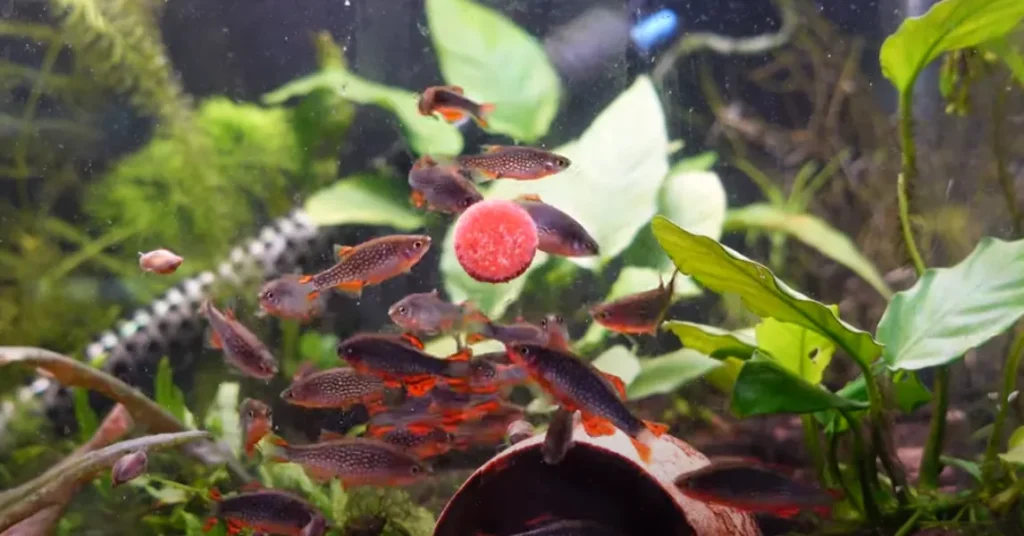
Effects of Expired Fish Food on Aquarium Health
Expired fish food can have negative effects on the health of aquarium fish. When fish food expires, it loses its nutritional value, and may even start to develop harmful bacteria. Feeding expired fish food to your aquarium fish can lead to a range of health problems, and in some cases, even death.
Here are some of the effects of feeding expired fish food to your aquarium fish:
- Reduced Nutritional Value: As fish food expires, it loses its nutritional value. This means that the food will not be able to provide your fish with the nutrients they need to stay healthy. Over time, this can lead to malnourishment, which can weaken your fish and make them more susceptible to disease.
- Bacterial Growth: Expired fish food can start to develop harmful bacteria. This can happen even if the food looks and smells fine. Feeding your fish this food can introduce harmful bacteria into your aquarium, which can lead to infections and other health problems.
- Digestive Issues: Expired fish food can be difficult for fish to digest. This can lead to digestive issues, such as constipation or bloating. In severe cases, this can lead to swim bladder problems, which can make it difficult for fish to swim properly.
- Toxicity: Some types of fish food contain preservatives that can become toxic when the food expires. Feeding your fish this food can lead to toxicity, which can cause a range of health problems, including organ damage and even death.
To avoid these negative effects, it is important to always check the expiration date on your fish food and dispose of any expired food. It is also a good idea to only buy as much fish food as you need, so that you can use it all before it expires. By taking these steps, you can help ensure that your aquarium fish stay healthy and happy.
How to Properly Store Fish Food
Proper storage of fish food is essential to keep it fresh and nutritious for your fish. Here are some tips to keep in mind:
- Keep it dry: Moisture can cause the food to spoil quickly. Make sure the storage container is completely dry before you add the fish food.
- Keep it cool: Heat can also cause the food to spoil. Store the food in a cool, dry place away from direct sunlight and heat sources.
- Keep it airtight: Exposure to air can cause the food to go stale. Use airtight containers or resealable bags to keep the food fresh.
- Store it in small quantities: Only buy as much fish food as you need for a few months. Large quantities of fish food can go stale before you can use it all.
- Check the expiration date: Always check the expiration date on the package before you buy the fish food. Don’t buy expired food, as it can be harmful to your fish.
- Avoid storing different types of food together: Different types of fish food have different expiration dates and storage requirements. Keep them separate to avoid cross-contamination.
- Label the container: Use a permanent marker to label the container with the type of food and the expiration date. This will help you keep track of what you have and when it expires.
By following these tips, you can ensure that your fish food stays fresh and nutritious for your fish.
Read More: Tap Water for Fish Tank – Ensuring the Best for Aquarium Water
Alternatives to Expired Fish Food
When it comes to feeding fish, it is important to provide them with fresh and nutritious food. If you find yourself with expired fish food, it is best to dispose of it properly and find an alternative to feed your fish. Here are some alternatives to expired fish food:
1. Fresh Food
Fresh food is always the best option for your fish. You can feed them live or frozen food such as brine shrimp, bloodworms, or daphnia. These foods are high in protein and vitamins, which are essential for the health and growth of your fish. You can also feed your fish fresh vegetables such as peas, zucchini, or spinach. These vegetables are a great source of fiber and vitamins.
2. Homemade Fish Food
If you have some spare time, you can make your own fish food at home. This way, you can control the ingredients and ensure that your fish are getting the nutrients they need. There are many recipes available online for homemade fish food, which usually involve blending together a variety of ingredients such as fish, shrimp, vegetables, and vitamins.
3. Commercial Fish Food
If you do not have the time or resources to make your own fish food, there are many commercial fish foods available on the market. When selecting a commercial fish food, it is important to choose a high-quality brand that provides a balanced diet for your fish. Look for fish food that contains a variety of ingredients such as fish meal, shrimp meal, and spirulina.
4. Supplemental Food
In addition to their regular diet, you can also provide your fish with supplemental food. This can include treats such as freeze-dried krill or algae wafers. However, it is important to remember that these should not be the main source of food for your fish and should only be given in moderation.
By providing your fish with fresh and nutritious food, you can ensure that they stay healthy and happy. Remember to always check the expiration date on your fish food and dispose of any expired food properly.
Frequently Asked Questions [FAQs]
As a fish owner, you want to provide your aquatic pets with the best possible care. One of the most important aspects of fish care is feeding them the right food. Here are some frequently asked questions about fish food:
How long does fish food last?
Fish food has a shelf life of about six months to a year, depending on the type of food and how it’s stored. Over time, the food can lose its nutritional value and become stale. It’s best to buy fish food in small quantities and store it in a cool, dry place to ensure it stays fresh.
Can fish eat expired food?
While it’s not recommended to feed your fish expired food, it’s not likely to kill them. Expired food can lose its nutritional value, and feeding your fish stale food for an extended period can lead to health issues. It’s best to avoid feeding your fish expired food and instead buy fresh food in small quantities.
How often should I feed my fish?
The frequency of feeding your fish depends on their size and species. In general, it’s best to feed your fish small amounts of food two to three times a day. Overfeeding your fish can lead to health issues and can cause the water in your aquarium to become polluted.
What type of food should I feed my fish?
The type of food you should feed your fish depends on their species. Some fish are herbivores and require a diet of plants, while others are carnivores and require a diet of meat. It’s essential to research your fish’s dietary needs and provide them with the appropriate food.
Can fish eat human food?
While some human food is safe for fish to eat, it’s best to avoid feeding them anything other than their regular food. Human food can contain ingredients that are harmful to fish, and feeding them too much can lead to health issues. It’s best to stick to feeding your fish their regular food and avoid experimenting with human food.
How much food should I feed my fish?
The amount of food you should feed your fish depends on their size and species. In general, it’s best to feed your fish small amounts of food two to three times a day. Overfeeding your fish can lead to health issues and can cause the water in your aquarium to become polluted.
In conclusion, feeding your fish the right food is essential for their health and wellbeing. It’s important to research your fish’s dietary needs and provide them with the appropriate food. By following these FAQs, you can ensure that your fish are getting the right nutrition and staying healthy.
Related Post: How to Raise KH Without Raising pH
